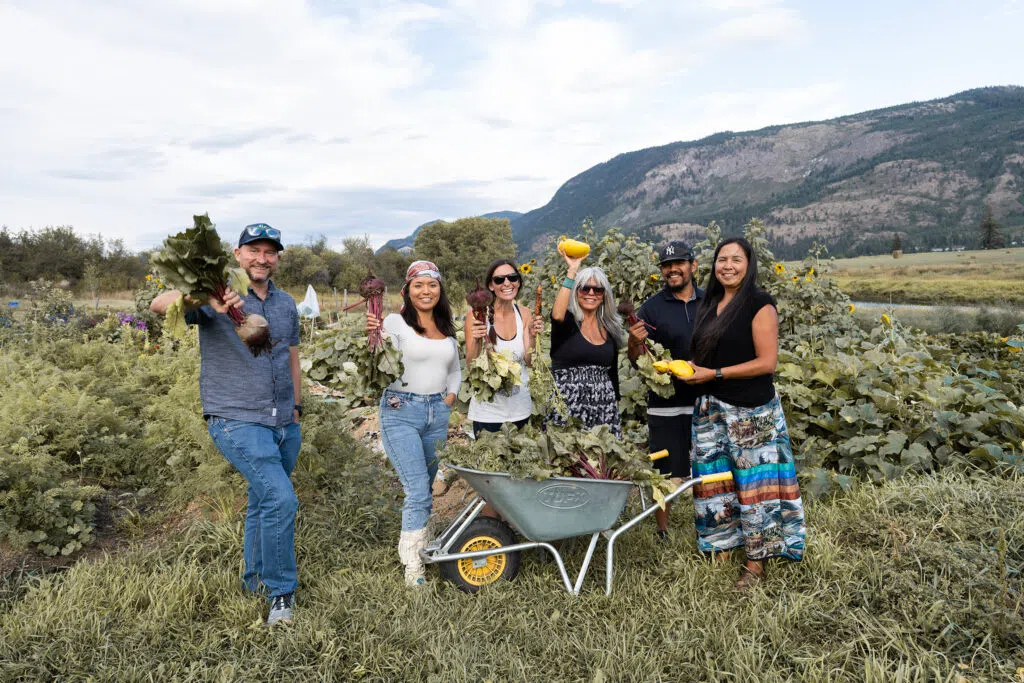In northern British Columbia, more than 30 Indigenous-led projects are making a significant impact on food security and sovereignty, supported by a groundbreaking initiative that continues to expand. The New Relationship Trust (NRT) launched the $30-million Indigenous Food Security and Sovereignty Program in 2023 to provide vital funding for both on-reserve and off-reserve projects. These initiatives aim to revitalize food harvesting practices, expand local food production, improve food processing, and promote sustainable food systems across the region.
Northern B.C. is home to a range of unique projects that blend traditional Indigenous knowledge with modern agricultural practices. In Williams Lake, Alkali Enterprises is working to establish a new irrigation system and greenhouse, which will help increase food production in the region, while the Sugar Cane Development Corporation is enhancing its 15 Mile Ranch project, focused on community gardens and food security planning. These efforts are not only aimed at increasing local food supply but also at providing long-term solutions to food access in rural and remote communities.
The Metlakatla Development Corporation in Prince Rupert is taking an innovative approach with its Regenerative Ocean Farming project, working to increase the production of local marine foods. The project supports both food sovereignty and environmental sustainability, helping to restore traditional ocean farming practices. Another key project in the region, the Nazko First Nation near Quesnel, is focusing on the expansion of orchards, which will not only improve food security but also support community-based agriculture.
In Bella Coola, the Nuxalk Nation Development Corporation is involved in food systems planning, working on projects designed to increase self-sufficiency and resilience in local food systems. This includes identifying long-term strategies for food production that reflect the cultural and environmental needs of the Nuxalk people.
In Haida Gwaii, Indigenous-led food enterprises are making strides in modernizing food processing. The Haida Wild seafood company, which specializes in high-quality, sustainable seafood, is upgrading its packaging facility with state-of-the-art equipment, such as a new vacuum-sealing machine. This innovation will help reduce waste, improve distribution, and preserve seafood for longer periods, allowing Haida Wild to better meet demand while preserving traditional fishing practices.
One particularly noteworthy project is taking place near Agassiz, where the Sts’ailes First Nation is building a community greenhouse as part of an effort to teach and promote traditional food practices. The project is centered on a series of workshops and community events, where locals can learn about ancestral methods of food production, including growing traditional vegetables and preparing them for local use. As part of its broader goal, the community hopes to reduce its reliance on commercial food stores and increase its capacity to produce food in-house, using both modern and traditional agricultural techniques.
Across the region, other Indigenous communities are embarking on similar initiatives that not only improve food access but also provide jobs, promote local economies, and protect the environment. Gitmaxmak’ay Nisga’a in Prince Rupert is establishing a modular farming greenhouse, while the Glen Vowell Indian Band in the Bulkley Valley is creating a food forest to help regenerate the land and increase food production. Additionally, Metlakatla First Nation is expanding its food security program, which includes the scaling up of food production to meet the needs of its growing community.
Many of these projects reflect the core values of Indigenous peoples, placing a strong emphasis on sustainability, community well-being, and a deep connection to the land. The goal is to not only increase food security but also empower Indigenous communities to take control of their food systems and build self-sufficiency for future generations.
As part of its ongoing commitment to reconciliation, the provincial government has recognized the importance of supporting Indigenous-led food initiatives. The NRT’s program is a crucial step toward fostering greater collaboration between the government, Indigenous communities, and local organizations. By supporting Indigenous food producers, the program strengthens the capacity of these communities to become leaders in sustainable food systems while preserving their cultural practices and traditions.
With new rounds of funding set to open, the momentum continues to grow for these transformative projects. The collective impact of these efforts promises to create lasting change across northern B.C., ensuring that Indigenous communities are not only part of the conversation about food security but are also at the forefront of shaping their food futures.










Comments